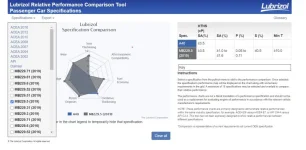Thanks again for all the replies. After understanding more about gear oil additives, I'll cross this off the list. There are so few manual transmissions anymore that detailed discussion about the stuff rarely ever comes up.
Sorry for talking out of turn on the oil list, I didn't mean to tick anyone off. The list is fine, and the testing behind it is great. If you start running a 20year old 986 though, please come to the forum and read what a lot of really experienced guys have to say about some of these.
The cold weather issue is pressure related. 0w40 mobil 1, for example, will give you a lifter tick in cold weather. Porsche actually redesigned the pressure release valve to combat this issue in later models, but a lot of people (me included) found that 10w eliminated the issue. Kinda crazy that they would redesign an engine part rather than change the recommendation, but that would tick off the company that paid to have their emblem stamped in the trunk since they only offer a high mileage version and a motorcycle version of 10w.
Speaking of mobil 1 (putting fire suit on now), the comment I made was based on info from this site. I'm not a "back in the good ol day" person, the comment was based on base group iii being the mainstay of their formulas. My understanding of oils (yes it is basic) is that it's better to start with better base group and need fewer additives then to just rely on additives to meet the needed specs. Please correct me if this is not accurate though.
The oil starvation issue - that's a doozy. People have tried everything under the sun and still have failures - accusumps, deep sumps, improved baffles. You could write a book on the issue, but the problem is purely mathematical - over 6k rpm the oil pump is moving over 20L per min and when the scavenge pumps cant get the oil back to the pickup during a long sweeping high g turn (porsche cheaped out and only put scavenge pumps in two corners of the case instead of all 4 and remember that this is a horizontal setup so gravity doesn't factor in) there's nothing that will save you.
Anyway, thanks again for all the replies!


